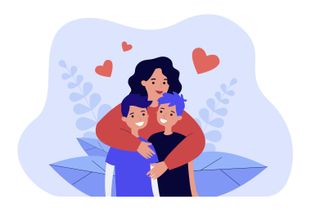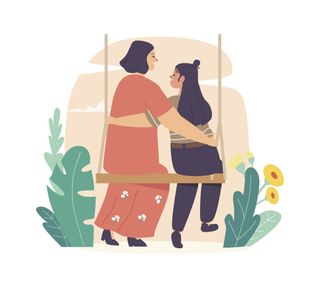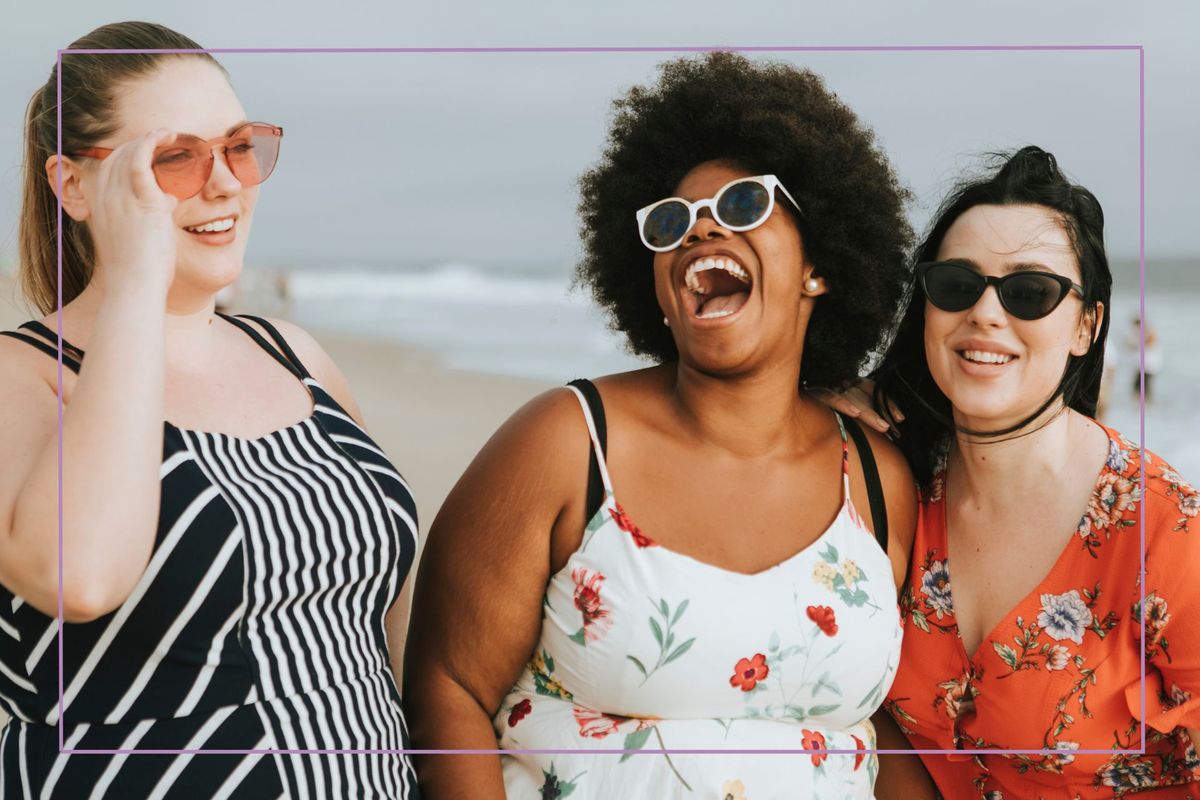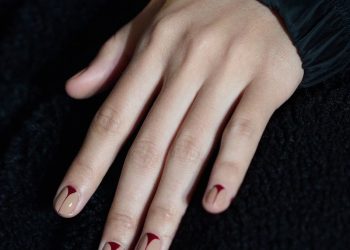Body positivity is a huge conversation both online and IRL (in real life); it’s not about ‘promoting obesity’ nor is it about ‘glorifying thinness’. Body positivity is about loving and accepting the body you’re in.
Body positivity is more relevant than ever – with nearly 11 million hashtags on Instagram, this is more than just a trend. When it comes to our weight, we are a society of extremes, and this is having a worrying effect on children and teens. More than 25% of children in the UK are obese by the age of 10. According to the NHS, record numbers of young people are receiving treatment for eating disorders (in an effort to tackle this, an eating disorders toolkit is being rolled out in schools to help students but more work needs to be done both in schools and at home).
It’s thought that these rising figures have been partly fuelled by the stress the global pandemic had on families. But social media is also to blame. “In December 2021, the Royal College of Psychiatrists noted a significant increase in the number of children developing eating disorders and found that social media and witnessing family difficulty as two significant factors for this,” explains Kerrie Jones, CEO and founder of Orri, a specialist treatment centre for eating disorders in people over 16.
Celebrities are also influential – research by the Mental Health Foundation showed that 25% of young people (37% of girls and 13% of boys) have worried about their body image because they’ve compared themselves to famous people. In an encouraging – albeit somewhat belated move – Disney has announced its first-ever plus-size heroine, who overcomes self-doubt and body dysmorphia to become a body-positive role model, and there are some fantastic body-positive ambassadors, such as content creator Megan Jayne Crabbe, but cases of eating disorders are still on the rise. They also tend to develop during adolescence and, worryingly, have the highest mortality rate of any psychiatric disorder, so talking to our kids and teens about body positivity is an essential part of parenting or caregiving. But what exactly is body positivity, and how do we approach the subject with our children?
What is body positivity?
Body positivity is about feeling good about your body and how it looks. It focuses on the health of our bodies – not just our physical appearance. It’s about liking your body regardless of age, gender, physical ability, sexuality, shape, size and skin tone. Self-acceptance is the goal, rather than comparing yourself to others or feeling like you have to look in a way that society deems ‘perfect’ or ‘ideal’.
It’s a wonderful premise, but – for many – easier said than done. A 2019 survey by the Mental Health Foundation found that 31% of teenagers felt ashamed in relation to their body image, while four in 10 teenagers said images on social media had caused them to worry about body image. Statistics such as these are proof as to why we need to explain body positivity to children and use positive language about bodies in general – not just about how your child looks but how you talk about your own and others’ bodies.
Body positivity promotes healthy bodies of all types
(Image credit: Getty)
Is body positivity a good thing?
Overall, body positivity is very good for people of all ages. While the movement has been criticised (some say it lacks inclusivity or may promote obesity), it’s made countless people feel better about themselves. Body positivity is about more than how we look physically—it’s about health, well-being, and confidence.
And it’s more important than many people realise. “Negative body image is not a trivial problem – it’s linked to a poorer quality of life, mental health problems, and the risk of developing eating disorders,” says Adam Nice, senior policy and public affairs officer for the Mental Health Foundation. “Body positivity is protective against these risks. It helps people appreciate and accept their bodies, encouraging a healthier relationship with their physical appearance,” he explains.
Kerrie agrees: “The body positivity, body acceptance and body neutrality movements have been revolutionary for helping people to celebrate their bodies for how they are, or, empowering people to decide not to assign an arbitrary value to it,” she says. “Some people find body ‘positivity’ very difficult, so introducing different ways to relate to your body has offered multiple avenues towards a more ‘well’ relationship to our physical selves.”
Why is body positivity so important?
Our mental health, our sense of self, and even our place in the world is intrinsically linked to our body image and how we feel about the way we look. Children and young people are sponges who soak up information, which makes them especially vulnerable to external influences – both positive and negative.
People of colour can have it particularly hard. “For young people from non-white backgrounds, poor body image can become intertwined with experiences of racism and feeling ‘othered’ by wider society,” says Adam. Indeed, there’s a misconception that eating disorders are an intrinsically ‘white ‘ issue – in one You Gov poll commissioned by UK eating disorder charity Beat, four in 10 people “believed eating disorders were more common amongst white people than other ethnicities.” Yet they’re just as common – if not more so – amongst BAME communities.
Research shows that there’s a worrying correlation between confidence and body image. “A Girlguiding Attitude Survey found 52% 11-14-year-old girls avoid everyday school activities because they don’t like how they look – these activities included sport, public speaking, drama and raising their hand in class to ask a question,” says campaigner and broadcaster Natasha Devon who – as well as working with teenagers on mental health concerns – writes young adult fiction about teen issues (her latest book, Toxic – which is about young female friendships – is out now).
Another cycle that needs breaking is the passing down of parents’ insecurities to children. This seems to be more prevalent between mothers and daughters – unsurprising given female beauty standards women are expected to adhere to. One study published in the Journal of Adolescent Health found that ‘45% of girls reported that their mothers encouraged them to diet and 58% reported weight-teasing by family members.’
Not only does having a poor body image affect confidence, it can lead to other problems. “If a child or teen has negative thoughts about their appearance, they can be less likely to engage in healthy behaviours, such as socialising or exercising in public,” says Adam. “Disengaging from healthy behaviours can lead to poor mental health. Children with poor body image are also at risk of using drastic, unhealthy behaviours to alter their image, such as developing an unhealthy relationship with food,” he warns.
“People who don’t like or respect their bodies are less likely to eat a balanced diet and less likely to exercise in a sustainable way, long-term,” adds Natasha. “They will tend to see food and exercise as a means of self-punishment, as opposed to a way to improve physical health and feel good” – (the latter being the very definition of body positivity). “There’s also evidence to show people who have poor body image feel less entitled to be treated well in their friendships and romantic relationships.”
This is why a body-positive attitude is integral to wellbeing. “It helps children to feel comfortable in their own bodies, allowing them to value themselves in more meaningful, healthy ways,” says Adam. “And it helps to protect against mental health problems.”
But teaching body positivity to your child is not just about making them appreciate and love their own bodies. We lead by example, so if we are highly critical of our own look, shape or physical ‘flaws’, our kids will learn these behaviours – even if we tell them that they are great and don’t need to change. Basically, if we are not body positive about ourselves, telling our kids to be will seem like empty words. We come in all shapes and sizes and some children – just like some adults – will never be a certain way, but if we berate ourselves for this our kids will learn to do this about themselves.
“I’d say to parents the most important thing is to address your own relationship with your body, first,” says Natasha. “And watch how you speak about other people’s bodies in front of them, too.”
“Embracing a more accepting and inclusive perspective towards our bodies grants us permission to exist simply as we are, recognising that we are more than just our bodies and that our bodies don’t exist in isolation from our minds and emotions,” add Kerrie. That applies to all of us.

Boys as well as girls need to feel body positive
(Image credit: Getty)
How to be a body-positive parent
Being a body positive parent should start sooner rather than later. This is because we internalise messages about our bodies from a very young age (earlier than we’d anticipate), and the messages we receive can go on to form the narrative of our lives in adulthood, says Kerrie. “As such, having an awareness of this and being thoughtful about how we talk and think about our bodies, and other people’s bodies, is important,” she explains.
Adam agrees: “Body positivity should be on the minds of parents from the beginning. While it may not be possible to directly teach about body positivity at an early age, modelling good behaviour as a parent is crucial, as early stray comments about parents’ own, their child’s, or others’ appearance can start to build a perception that conforming to a particular body image is valuable.”
If you haven’t started yet, don’t panic – better late than never. Plus, you have most likely been positive in other ways that have helped build your child’s confidence. “Sometimes the solution is to move the conversation away from bodies entirely – make sure your child knows they are valued for their intangible qualities; for example, being witty, kind or thoughtful,” says Natasha.
What counts is consistency and persistence. Big them up regularly – don’t worry about pumping up their ego. After all, who else tells our kids they’re loved and they’re great. Being specific helps. For example:
- That was a kind thing to do for your friend
- You’re very thoughtful for helping your sister/friend/gran
- You have a lovely smile/brilliant laugh
- You worked really hard on that test/tidying up
“Children learn through repetition and live in a world that seeks relentlessly to persuade them that how they look is the most important thing about them,” says Natasha. “See yourself as the counter-narrative. Even when it seems like you aren’t getting through, keep at it.”
How to talk to your teen about body positivity
All parents will know that delicate conversations with their kids can be tricky at best, a minefield at worst. You won’t get it right each time, but stick at it with honesty and tact.
“Don’t just tell your child they’re beautiful/perfect as they are,” says Natasha. “You’re not only reinforcing the idea that looks are the most important thing, but you might also give them a fear of their bodies changing which could rear its head around puberty.”
However, lying won’t help in the long-run. “Don’t lie to your child, either,” says Natasha. “How they look will affect their experience of life, but make sure they know that it’s the world’s problem, not theirs. Say something like ‘how you look is like wrapping paper on a present – it’s what’s inside the box that’s the most important thing’,” she says.
Developing a healthy level of self-respect is key – not only will this help kids and teens take care of their bodies, it will prevent them from letting others disrespect their bodies (through bullying or abuse). “It’s the only thing they’ll ever have that they truly own so make sure they realise that their body is theirs,” says Natasha.
It also helps to let young people be exactly that – young. Let them experiment and find their way in the world. “Making smart decisions when it comes to diet, exercise and experimenting with fashion, hair, makeup are part of a wider discussion about consent,” says Natasha. “It’s not what they do but why they do it that is important.” So, pick your battles, but if your child is going to what you believe are extremes (intense dieting, over-exercising, lots of piercings) ask yourself why they’re pushing so hard, and reach out.
For children to become well-rounded they need to know they are of value – not just for how they look but for who they are. “Celebrate aspects of them that aren’t related to external factors – for instance, their interest areas, education, how they are with their friends and relationships,” says Kerrie.
Adam recommends compliments based on behaviour. “While there’s nothing wrong with complimenting a child/teen on how they look from time to time, it can feed into the idea that appearance is what you value if you don’t balance it with other types of compliments,” he says. “While character-based compliments reinforce the idea that we are valuable because of who we are, not because of how we look.”

Let your kids know you’re there for them
(Image credit: Getty)
Do say:
- I love your positive attitude
- You’re really beaming today
- You have a great energy
- You’ve been very kind and supportive lately
- You have such a creative streak
- You look fantastic in that outfit
- That colour suits you
- If you’re full you don’t have to finish your meal, or have the rest later
- That exercise is helping – you’re sleeping better/seem calmer
- Fancy a game of tennis, or going for a swim/jog/walk?
- I’d benefit from eating more healthily/doing some exercise
- I’m here for you
Don’t say:
- Are you going to eat/drink that?
- Your friend is looking very slim
- Have you lost weight?
- You need to do more exercise
- You’re not going out dressed like that
- Stop obsessing over your face/hair/weight
- You need to eat everything on your plate
- I hope you don’t get my thighs/bum/tum
- I look/feel so ugly
- I need to diet/I’m so fat
Support for parents and kids
Parents and caregivers don’t always get it right. Even with encouragement and support, children and teens can develop body issues.
“Children tend to think in a very black and white way: e.g. ‘if my body isn’t right, then I am not right’, which can lead to mental health conditions such as depression, anxiety and eating disorders if we’re not offered the intervention we need to reframe this thought process,” says Kerrie. So, if you don’t feel you are helping, there is support out there for young people with anxieties about their body, and for those who are developing, or have developed, disordered eating patterns.
“Eating disorders serve as a maladaptive coping mechanism; providing a false sense of security and control when otherwise we would feel out of control,” says Kerrie. “They also serve to numb overwhelming emotions, such as anxiety or sadness, by distracting and narrowing our focus onto things like food, calories, clothing size or body weight. Whilst this might sound like eating disorders are all about food and body size, they are in fact a symptom of more complex, underlying causes, and instead serve as a red flag that something isn’t quite right in someone’s life,” she says.
If you or your partner has body issues – and you are concerned that you may be passing these on to your children – there’s help for you, too. These organisations, books and Instagram accounts can educate and help both adults and young people.
Extra support
Organisations
Mental Health Foundation (guide for parenting for a healthy body image)
The Be Real Campaign (creating a body confident nation)
Beat (supporting those with eating disorders)
Children’s Society (blog on building body positivity)
Childline (free, confidential online or phone counselling service for kids)
Books
Happy Confident Me Super Journal for Kids (£13.99, Amazon)
Everybody’s Body: A Body Positive Picture Book For Children (£7.99, Amazon)
Minnie and Max are OK!: A Story to Help Children Develop a Positive Body Image (£9.34, Amazon)
Body Positive Power: How to stop dieting, make peace with your body and live (£7.99, Amazon)
For more advice on life with teens you can also take a read of our guide on how to talk to kids about coming out or browse the best gratitude journals, positivity planners and activity books for kids. Elsewhere, you could get stuck in with some free self-care ideas.




















